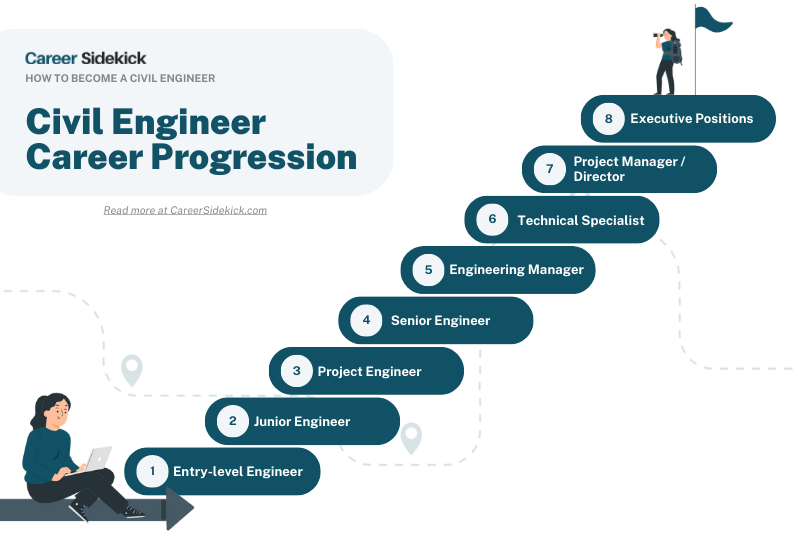Building the Basics: A Sneak Peek into the B.Tech. Civil Engineering Syllabus

Blog / February 25, 2025
B Tech Civil Engineeringb tech civil engineering syllabusb tech civil engineering syllabus 1st semesterCivil engineering can be recognized as one of the oldest engineering branches that has been building the essential framework of human settlements for ages. Civil engineers are responsible for creating and designing structures that give life to the modern setting, from roads and bridges to skyscrapers and supply systems. The profession has transformed from those days spent mainly on clay soil and basic tools to advanced materials, sustainable construction technology, and intelligent technology, all of which are now useful to meet the new urbanization and environmental protection challenges. According to a report by Grand View Research, The global civil engineering market size was estimated at USD 9.09 trillion in 2023 and is projected to grow at a CAGR of 6.1% from 2024 to 2030.
Students interested in developing infrastructure for everyday life needs should choose the B.Tech. Civil Engineering degree program. The four-year undergraduate education combines basic engineering instruction with the chance for students to choose specific subfields, such as structural, geotechnical, environmental, and transportation engineering. Modern civil engineering offers promising career opportunities because worldwide investments in infrastructure projects grow in demand simultaneously.

What is B.Tech. Civil Engineering?
Through a B.Tech. Civil Engineering program, students learn practical and theoretical abilities needed to develop frameworks for creating infrastructure projects. Students learn through mathematics, physics, and core engineering concepts, along with laboratory work, internships, and project-based learning.
Students in this program develop expertise in:
- Structural Analysis and Design
- Geotechnical Engineering
- Environmental Engineering
- Transportation and Highway Engineering
- Water Resource Management
- Construction Management
- Smart and Sustainable Infrastructure
These subjects help students understand the complexities of construction projects and prepare them for real-world challenges in civil engineering.
B.Tech. Civil Engineering Syllabus
The B.Tech. Civil Engineering syllabus is structured to provide a balanced mix of fundamental sciences, engineering principles, and specialized courses. The programmed infrastructure protects essential fundamentals that students need to grasp before proceeding to complex subjects.
B.Tech. Civil Engineering Syllabus 1st Semester
The first semester is crucial as it introduces students to the core concepts of engineering and basic sciences. The B.Tech. Civil Engineering syllabus 1st semester typically includes:
- Engineering Mathematics I
- Engineering Physics
- Engineering Chemistry
- Basic Electrical and Electronics Engineering
- Engineering Graphics and Design
- Environmental Science
- Communication Skills
- Engineering Mechanics
- Introduction to Civil Engineering
This semester focuses on building a strong foundation in mathematics and physics while introducing students to civil engineering fundamentals. Practical lab sessions complement theoretical learning, providing hands-on experience with engineering tools and software.
Specializations in B.Tech. Civil Engineering
Students can decide their specialized academic paths through their interests as they advance in their studies. Several fields of specialization draw widespread popularity.
- Structural Engineering: Structural Engineering focuses on designing structures while performing structural analysis for bridge construction together with building development and civil infrastructure development.
- Geotechnical Engineering: Involves studying soil mechanics and foundation engineering.
- Transportation Engineering: Transportation Engineering builds methods for roadway and train systems in combination with airport and traffic control system planning and design capabilities.
- Environmental Engineering: Covers waste management, pollution control, and sustainable development.
- Water Resources Engineering: Water Resources Engineering concentrates on the research of hydrology, water supply systems, and flood management.
- Construction Management: Involves project planning, cost estimation, and resource management.
Choosing a specialization helps students gain expertise in specific areas, improving their employability and career prospects.
Career Opportunities in Civil Engineering
Major industries welcome civil engineers with a B.Tech. Civil Engineering degree to various professional opportunities. Workers in civil engineering help public and private organizations develop infrastructure systems along with urban planning. Civil engineering students who seek careers have access to multiple prestigious fields that include:
- Site Engineer: Management of Construction Projects
- Structural Engineer: Creates designs for building foundations while analyzing their structures, bridges, and other infrastructure elements.
- Transportation Engineer: Organizes the creation of transportation infrastructure to improve traffic efficiency.
- Geotechnical Engineer: Evaluates ground layers for buildings to create foundational designs.
- Environmental Engineer: Involves eco-development-related projects such as pollution control and waste management.
- Project Manager: Directs budget management operations and resource usage for assigned teams through construction project oversight.
With the growing demand for infrastructure development, civil engineers play a vital role in shaping the future of urban and rural areas.
From Blueprints to Reality: B.Tech. in Civil Engineering @ Shiv Nadar University (Institution of Eminence)
The B.Tech. in Civil Engineering program at Shiv Nadar University delivers a thoroughly arranged curriculum that empowers students to succeed in their engineering specialization. The School of Engineering produces undergraduate students who receive admission to esteemed global institutions and funding for Master's or Ph.D. programs at Stanford University, the University of Texas A & M, TU Delft, University of Leeds, University of Waterloo, University Stuttgart and Arizona State University among others.
Why Study B.Tech. in Civil Engineering at Shiv Nadar University?
- Stands as a 21st-century hub, fostering the intellectual prowess of students
- Leveraging innovative teaching approaches complemented by cutting-edge facilities
- Aligned with the National Education Policy 2020
- Adhering to the ethos of "think globally, act locally"
- Prioritizing industry engagement
- Recognizing merit
Additionally, many of the bachelor degree students also got job offers from industrial giants such as Shapoorji Pallonji Group, Larson and Toubro, Tata Projects, Saint-Gobain, RMS (Risk Management Solutions), RITES Ltd, etc.
Parting Notes
The B.Tech. Civil Engineering degree provides students access to different avenues that lead to fulfilling careers centered on building infrastructure, city planning, and environmentally friendly engineering practices. The B.Tech. Civil Engineering syllabus at modern engineering institutions integrates a curriculum framework along with practical learning experiences. Civil engineers are important in shaping the world, whether aspiring to design towering skyscrapers, developing smart transportation networks, or contributing to environmental sustainability. Pursuing education at established institutions enables students to achieve superior educational and industrial experiences, resulting in successful research within quickly advancing studies.